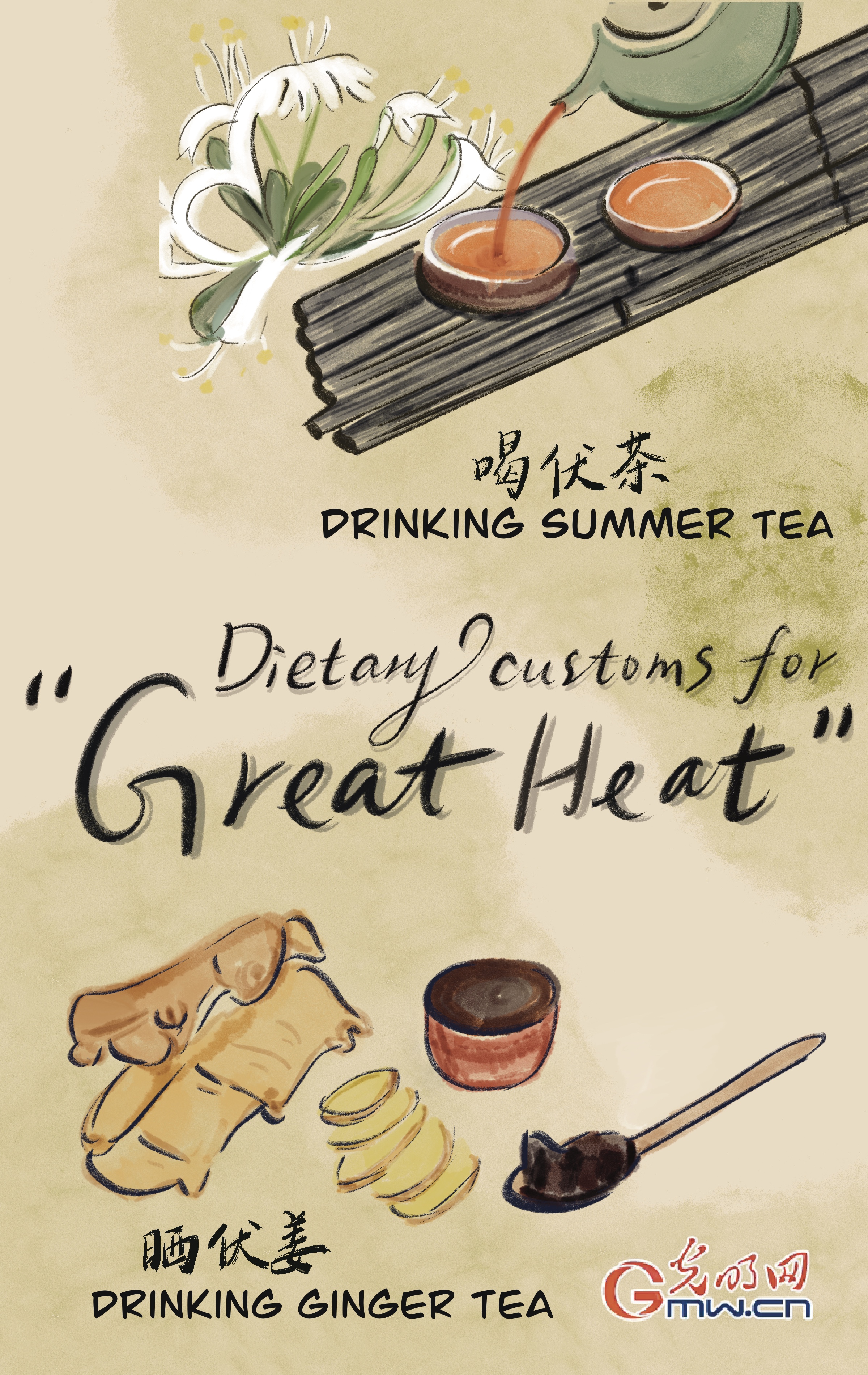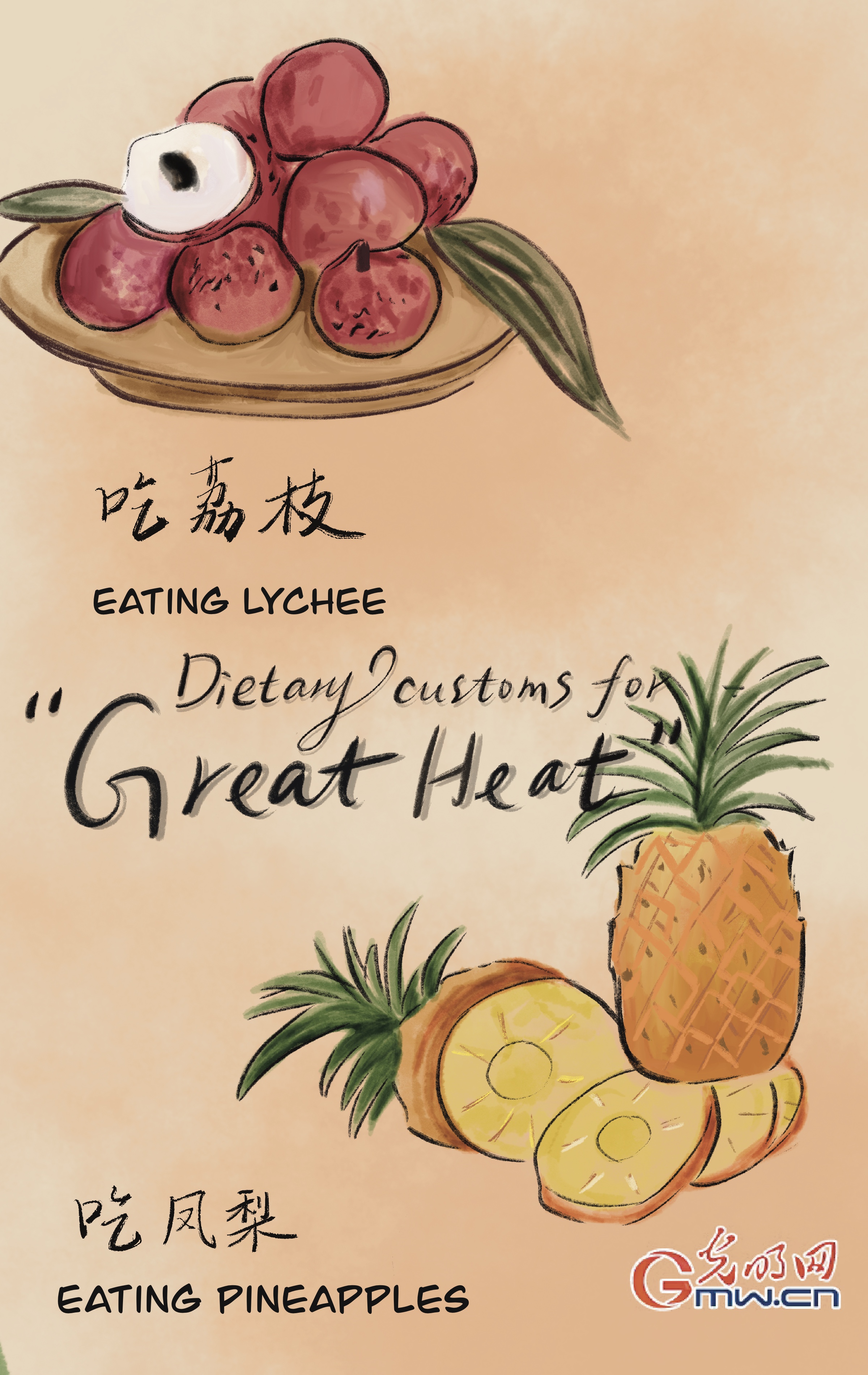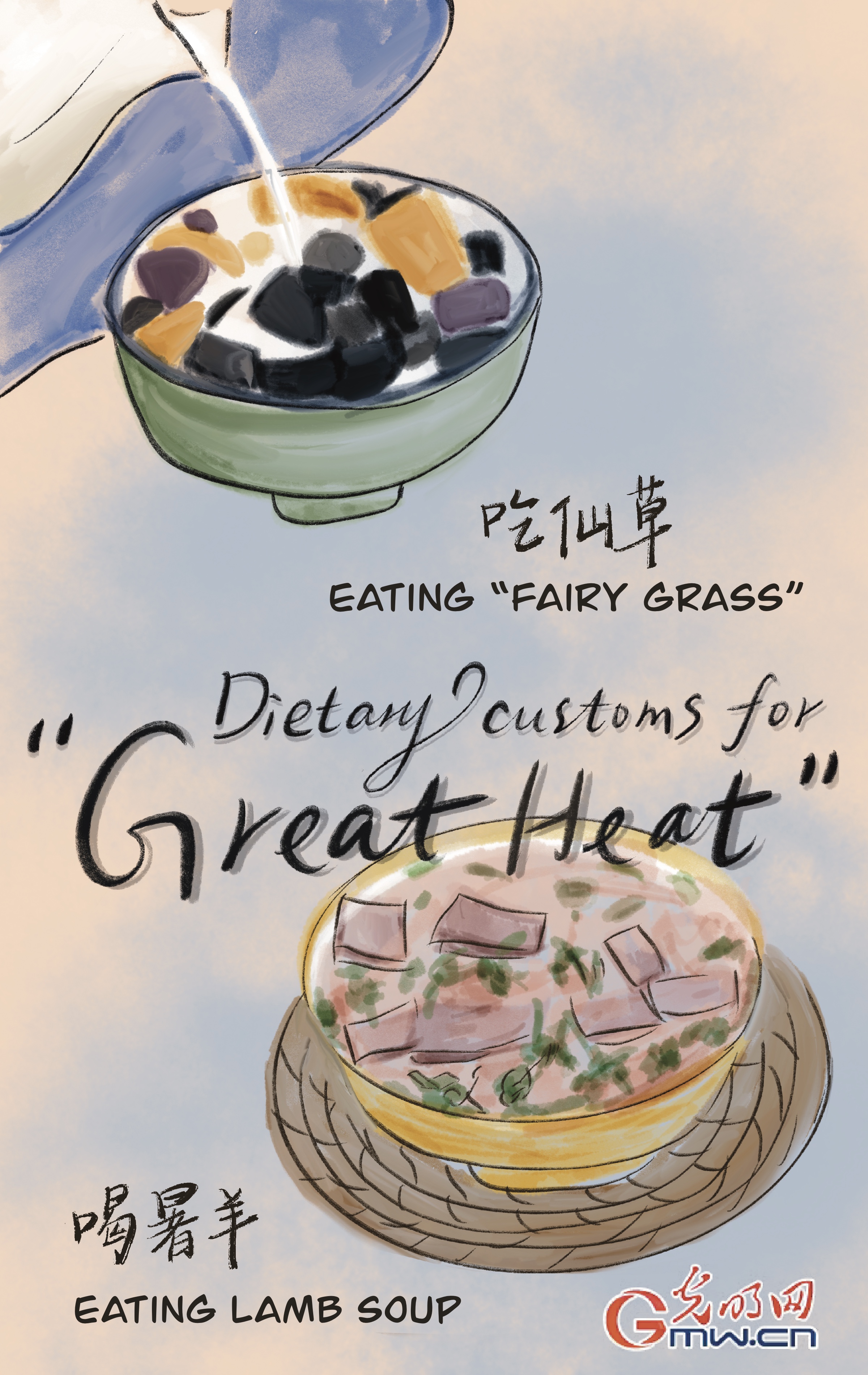

By Wang Ruoxin
The Great Heat, or Dashu, the last solar term in summer falls on July 23 this year. It marks the hottest period of the year, during which dietary customs show difference from region to region in China, such as eating lychee in east China’s Fujian, eating pineapples in Taiwan, enjoying grass jelly in south China’s Guangdong and having mutton soup in east China’s Shandong.

Drinking Summer Tea
Summer Tea, prepared for the dog days of summer, is made from more than 10 herbs such as honeysuckle, selfheal and licorice, which has the effect of cooling and dispelling the summer heat.
Drinking ginger tea
On the dog days of summer, people slice or juice ginger, mix it with brown sugar, then dry it in the sun. Drinking ginger tea can bring out the cold energy in the body.

Eating lychee
The people in Putian, Fujian Province, have the custom of eating lychee in summer. Lychee is a specialty of Putian that matures around “Great Heat”. It’s warm in nature, and can nourish the body.
Eating pineapple
Taiwan has the custom of eating pineapple in summer. Pineapple tastes the best around “Great Heat”. Also, in southern Fujian dialect, pineapple is pronounced as “Wang Lai” (meaning “good fortune arrives”), so the locals eat pineapple to pray for peace and good luck.

Eating lamb soup
People in some places call lamb soup the “summer sheep”. People living in the Yimeng Mountain region and the southwest of Shandong Province eat lamb soup during “Great Heat”, which helps dispel dampness and mitigate the summer heat.
Eating “fairy grass”
In Guangdong, there is a custom of “eating fairy grass” during “Great Heat”. The “fairy grass”, also known as Chinese mesona herb, is an important dual-use herb both as medicine and vegetable. It is renowned as “fairy grass” because of its miraculous effect on summer heat. Its dry stems and leaves can be used to make jelly grass, which is a kind of dessert to beat the summer heat.
点击右上角![]() 微信好友
微信好友
 朋友圈
朋友圈

请使用浏览器分享功能进行分享
